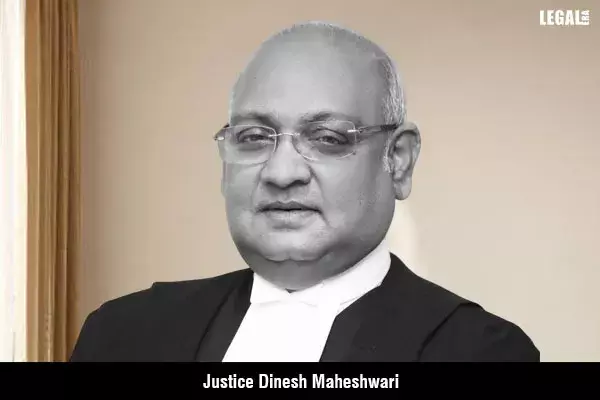Supreme Court Releases Murder Accused Spent 18 Years in Jail Stating 'Sudden Provocation Without Premeditation'
On 9 February 2021, the Supreme Court of India (SC) in the case of Pardeshiram (Appellant) v. State of M.P. (now Chhattisgarh);

Supreme Court Releases Murder Accused Spent 18 Years in Jail Stating 'Sudden Provocation Without Premeditation' On 9 February 2021, the Supreme Court of India (SC) in the case of Pardeshiram (Appellant) v. State of M.P. (now Chhattisgarh) (Respondent) directed the release of a murder accused farmer who spent 18 years in jail. The SC bench consisting of Justices Hemant Gupta and S....
Supreme Court Releases Murder Accused Spent 18 Years in Jail Stating 'Sudden Provocation Without Premeditation'
On 9 February 2021, the Supreme Court of India (SC) in the case of Pardeshiram (Appellant) v. State of M.P. (now Chhattisgarh) (Respondent) directed the release of a murder accused farmer who spent 18 years in jail.
The SC bench consisting of Justices Hemant Gupta and S. Ravindra Bhat, held that the accused is liable to be convicted for the offence under Section 304 Part I of the Indian Penal Code (IPC) and not under Section 302 IPC.
The factual background of the case is that the appellant was accused of murdering a person named Kartik Ram in an incident that took place on 30 May 2002.
The incident occurred due to a dispute between them over the construction of a wall, the appellant had allegedly assaulted the deceased with a spade and hit him with a stone on his head and as a result, the deceased died.
The appellant was convicted by the Trial Court under Section 302 of IPC and he was sentenced to life imprisonment. He filed an appeal that was dismissed by the High Court (HC).
The appellant approached the SC and contended that the offence was committed without premeditation in the sudden fight in the heat of passion and hence it falls within Exception 4 of Section 300 IPC. It was further submitted that the accused and the deceased are members of the family and that the dispute occurred on the question of raising the wall.
It was contended before the SC Bench that "The appellant is alleged to have hit the deceased with the Shovel, a common agricultural tool, and later picked up a stone to hit the deceased. Such injuries were caused in the heat of passion as is likely to cause death. Therefore, it will be culpable homicide not amounting to murder falling within the first part of Section 304 IPC."
Taking a note of the submissions made by the appellant, the Bench observed, "The accused is an agriculturist, and the Shovel is a part of an agricultural tool that is possessed by agriculturists. The accused was attributed with the first blow with the Shovel followed by a hit with a stone on the head of the deceased which was picked up from the street. The accused and the deceased were from the same family."
The Top Court further observed that "The cause of provocation was sudden, without premeditation. We find that, in the facts and circumstances of the case, it is a case falling under Exception 4 of Section 300 IPC. The injuries were inflicted without premeditation in a sudden fight in the heat of passion upon a sudden quarrel and without the offender having taken advantage or acted cruelly or unusually."
The SC concluded that the appellant is liable to be convicted for an offence under Section 304 Part I of IPC. It stated that the appellant has served more than 18years of his jail sentence. It considered the period of custody undergone; the relationship between the accused and the deceased and the background in which the injuries were caused, and partly allowed the appeal.
The Apex Court held, "To convict the appellant for an offence under Section 304 Part I IPC and sentence him to the sentence already undergone. He is to be released forthwith, if not wanted in any other case."





